“La vida te da sorpresas”: Illness sends a family to food pantries
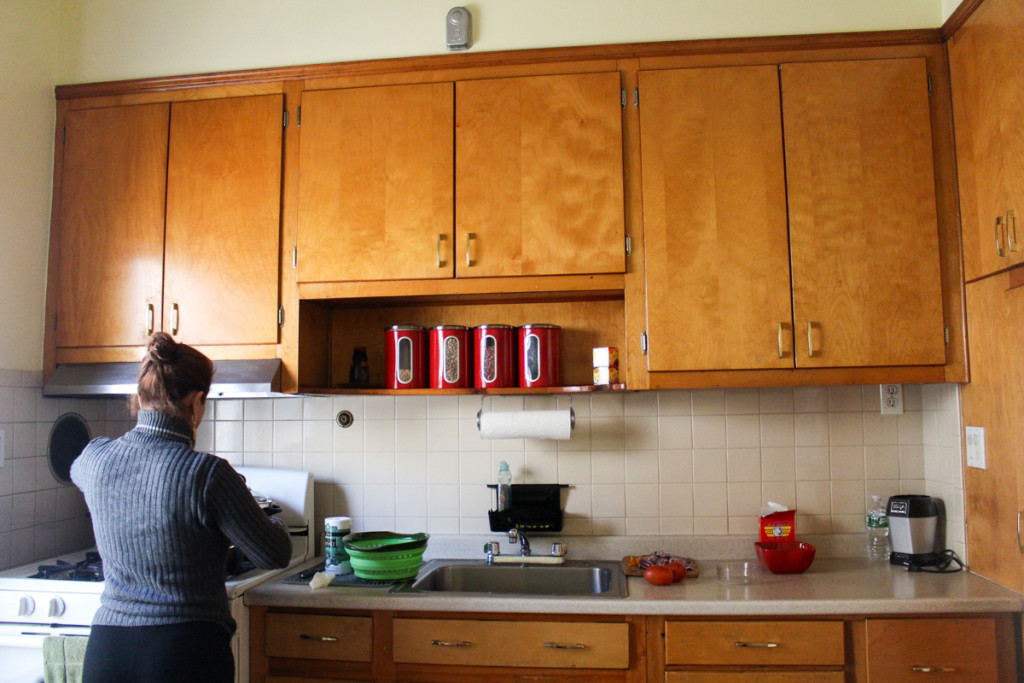
In her kitchen, Blanca cooks for her husband, who is ill, and two children. Photo: Roxanne Wang.
By Natasa Bansagi
About six months ago, Adolfo and Blanca and their two children lived in an apartment in Queens, owned a BMW and went out to restaurants for supper on Sundays. All it took to land them in the basement rectory at St. Raphael Catholic Parish, waiting to collect a twice-monthly allotment of free groceries, was one visit to the hospital.
Blanca, 51, who is undocumented, came to the U.S. from Ecuador 21 years ago, after her second attempt at crossing the border between Mexico and the U.S.. She met her husband, Adolfo, 55, in New York; he had fled Peru in 1989. They have two sons, ages 13 and 17, who are American citizens. For about eleven years, Blanca had her own grocery store—first, under her cousin’s name, and then under her husband’s, once he obtained official status as a U.S. citizen, since she didn’t have her own residency papers. She made a deal with her cousin, a U.S. resident, to have the store filed under her name in return for letting her live with them for free. Adolfo operated his own four-member construction company, focusing on small jobs like painting.
This all changed last October, when he was diagnosed with bone marrow cancer. That same month, he underwent an 11-hour-long operation to have his C7—a vertebra in the neck area—and the cancerous tumor removed.
“The life give the surprise,” Blanca said. “La vida te da sorpresas.” Adolfo has not worked since.
Now, every second Thursday, Blanca goes to the basement rectory at St. Raphael’s in Long Island City, Queens, to get food from the pantry there.
Food pantry clients receive an identification card, issued by the parish, which they present on every visit. Clients are limited to using the service twice a month, but the pantry is also designed to help outside these hours, by providing people, including those without citizenship or residency papers—like Blanca—with a form of ID they can use from day to day.
Adolfo applied for temporary disability in October, but the couple said that he won’t receive the first payment until July. Blanca closed the grocery store back in 2011, after the 2008 economic crisis took a toll on the business. While Adolfo was doing construction jobs, she worked as a housekeeper, for individual clients, about three days a week. In recent months, she has cut her work schedule to Saturdays in order to take care of her husband and accompany him to his many medical appointments during the week. Adolfo said that his doctor told him he’d be able to ease back into a regular schedule in a couple of weeks, but he no longer has his company — business fell off because clients trusted him so much that they often wanted him to do the work, even though he trained the other members of his crew and reassured the clients of his colleagues’ abilities. He’s not too worried about getting work again, though, because he says the city’s construction market is strong, and he also knows people working in it.
Business was so strong before Adolfo fell ill that he bought a BMW for Blanca, which they still have because it costs less to keep it than to return it. They have a three-year lease on the vehicle, but only about a year and two months had gone by when Adolfo stopped working — and finishing the contract costs less than returning it, which would involve paying fees and damages so that the dealership could resell the car. They have shut down their land line and rely on cellphones, cut cable service to one room of their apartment, and stopped sending their son to a tutor.
Blanca now uses two food pantries in Queens—one on a Tuesday evening, which is walking distance from their home, and one on Thursday, at St. Raphael’s, to which her friend drives her. The couple also receives $200 per month in food stamp benefits for their children, which they began using about two years ago. Since October, their landlord, whom they are very close to, has chipped in to help them: they got one month’s free rent this Christmas, which saved them $1,100, as well as chicken, vegetables, and an envelope with $20 for the children.
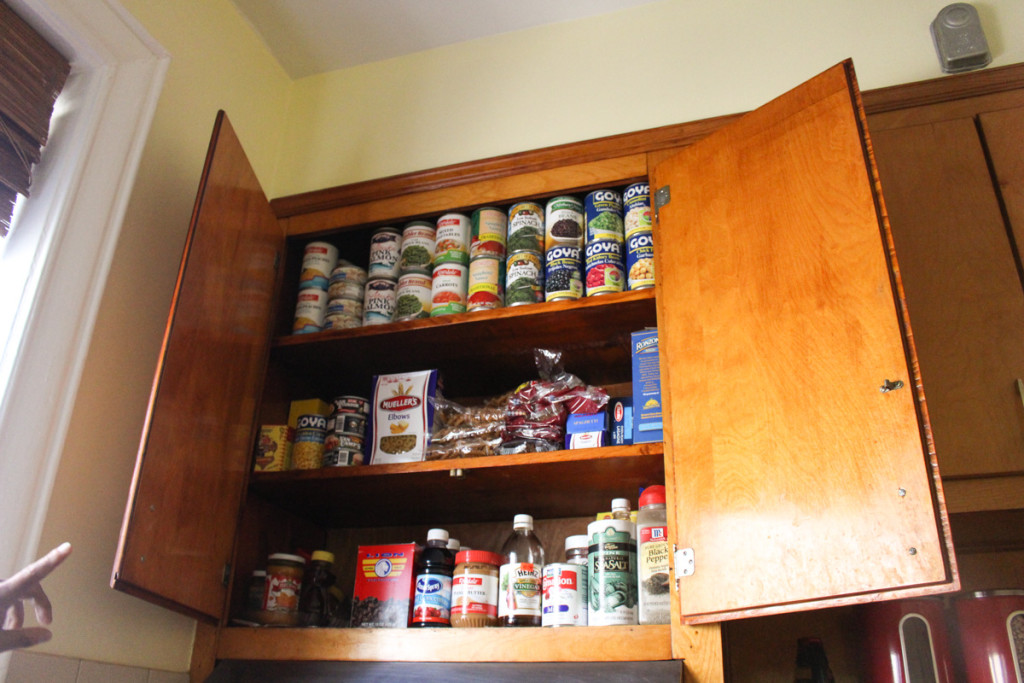
Blanca organizes the cans she gets from the food pantry. Photo: Roxanne Wang.
The order in Blanca’s kitchen—even the canned foods she gets from the pantry are lined up just so behind cabinet doors—mirrors the care and precision she brings to her cooking. On a recent Sunday evening, she made an Ecuadorian version of a dish called “arroz con pollo,” which means rice with chicken. Her organization is reflected in all stages of the meal preparation, including how she neatly places the red dishes, part of her kitchen set, to dry.
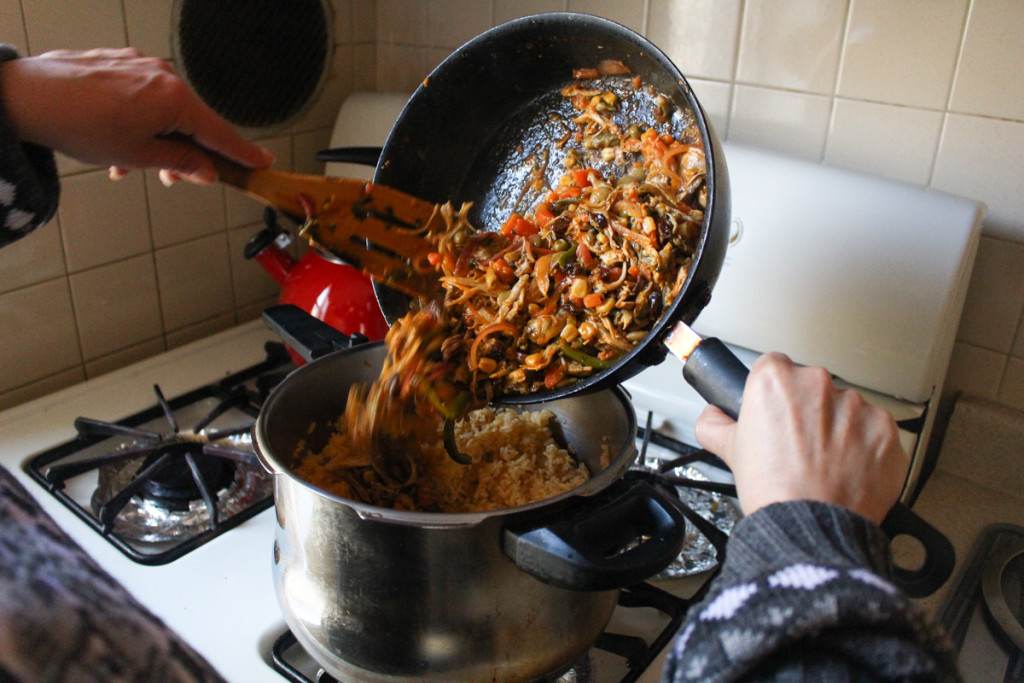
Blanca makes dinner. Photo: Roxanne Wang.
The family used to go out to eat on Sunday evenings, tasting food from a variety of cultures at restaurants they could walk to from their home: Italian food, Japanese food, Indian food, Thai food and more. No longer. Blanca’s also had to scale back her children’s expenses; she had to refuse her eldest son’s request to buy a school jacket as a souvenir for his high school graduation this year.
“We go [to the food pantry] after we went all the time to the restaurant, spent money in the restaurant, with the kids … do the first step, it’s hard,” Adolfo said. “I said, Blanca, we have no choice, we have no choice.”
“We have two kids, rent, everything.”
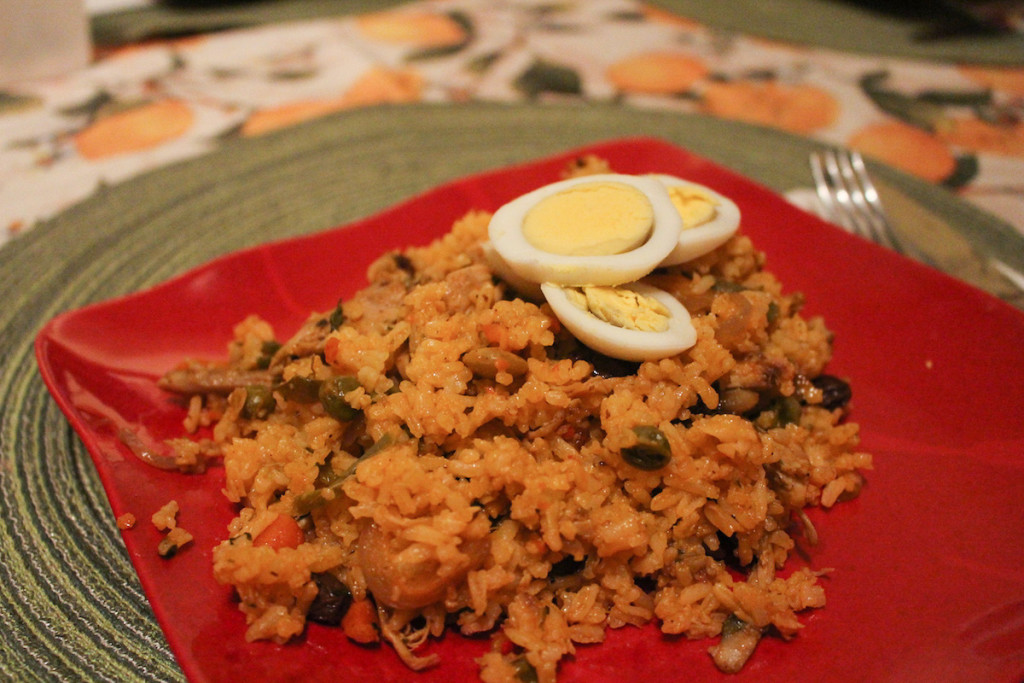
The finished dish for Sunday supper: arroz con pollo, with slices of hard-boiled egg. Photo: Roxanne Wang.
Adolfo’s sister recently came from Peru to visit the family, and, since part of her visit fell on a Thursday, Blanca had to give up her trip to St. Raphael’s that day because she didn’t want to tell her sister-in-law about their situation.
Sometimes the couple reflects on how they might one day view these last few months, in the hope that soon things will get back to how they used to be.
“This was maybe like a dream, one day,” said Adolfo.
Tags: arroz con pollo, food pantry, Queens, St. Raphael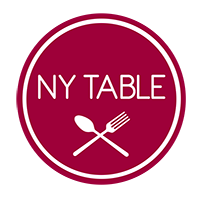
Your Comments